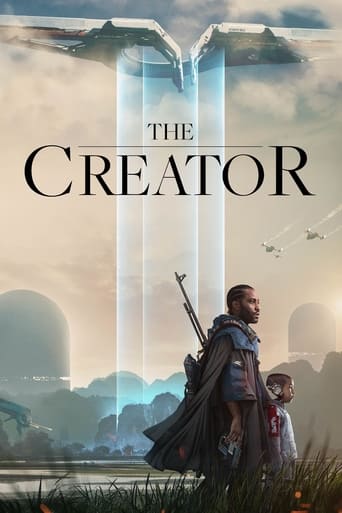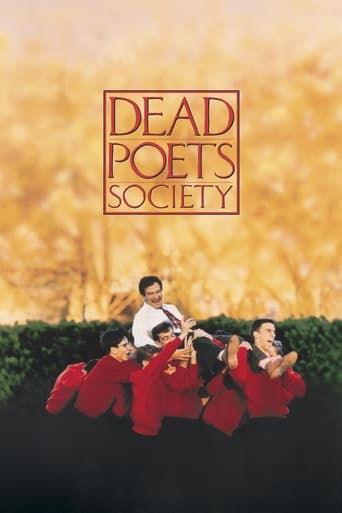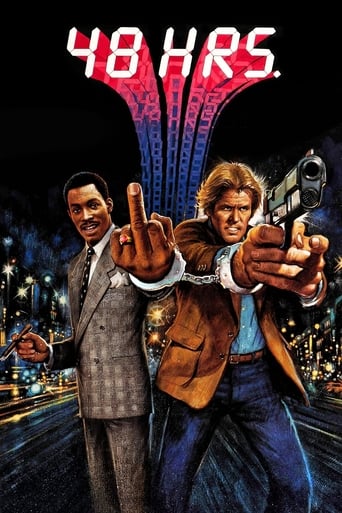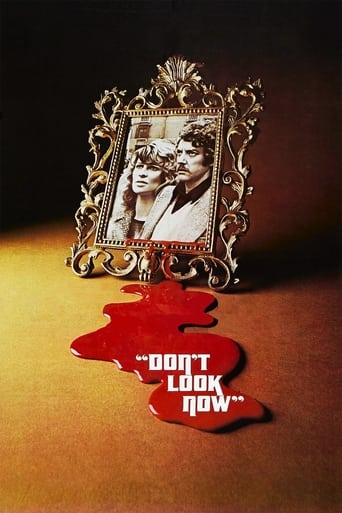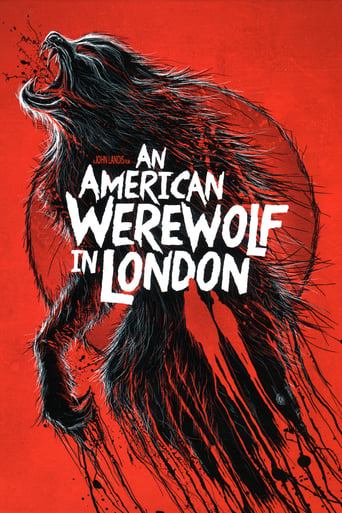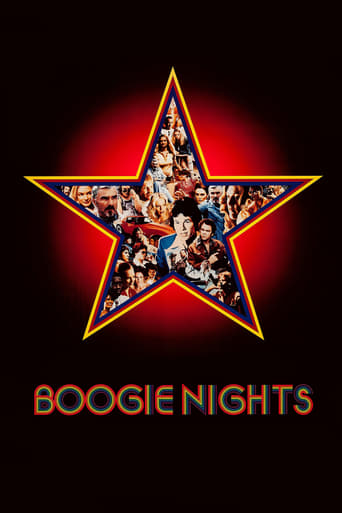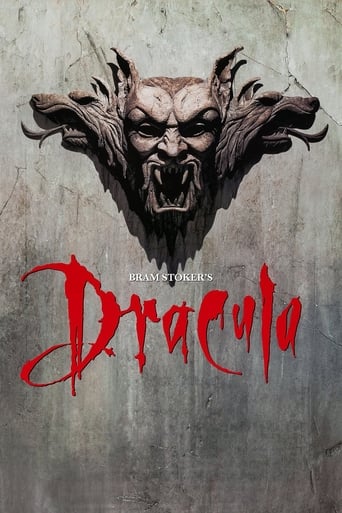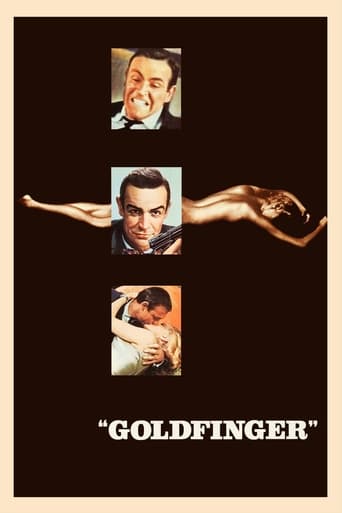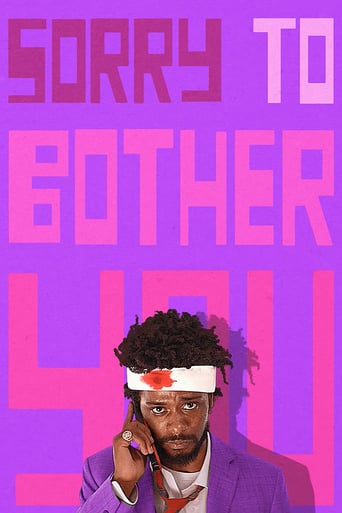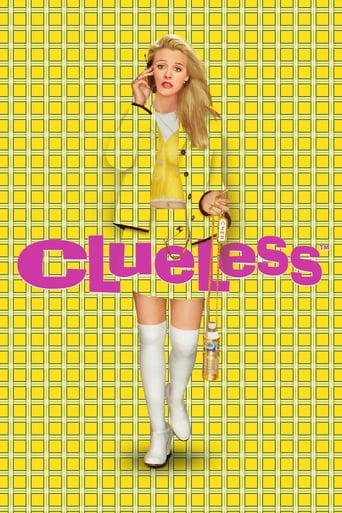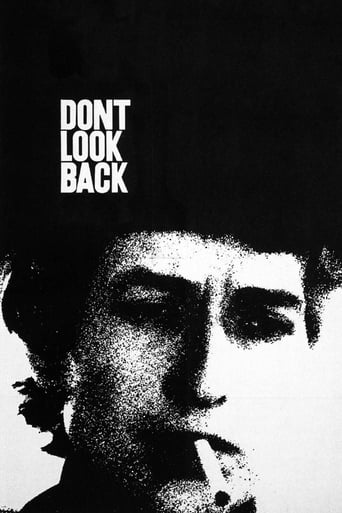


Bob Dylan - Dont Look Back
In this wildly entertaining vision of one of the twentieth century’s greatest artists, Bob Dylan is surrounded by teen fans, gets into heated philosophical jousts with journalists, and kicks back with fellow musicians Joan Baez, Donovan, and Alan Price.
-
- Cast:
- Bob Dylan , Albert Grossman , Bob Neuwirth , Joan Baez , Alan Price , Donovan , Allen Ginsberg


Similar titles
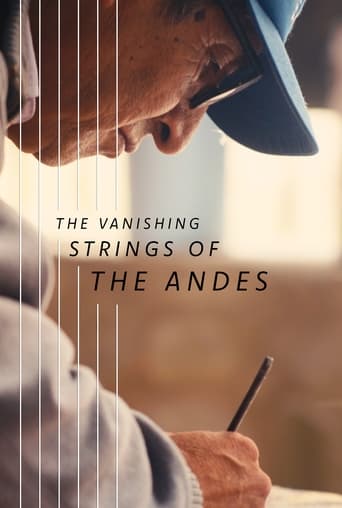
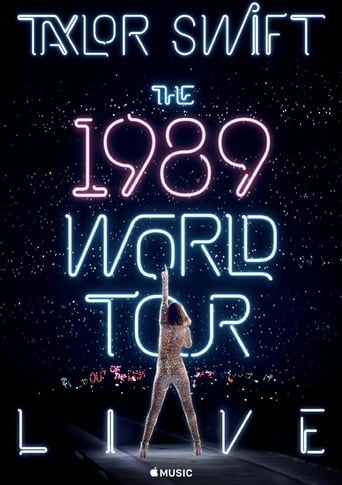
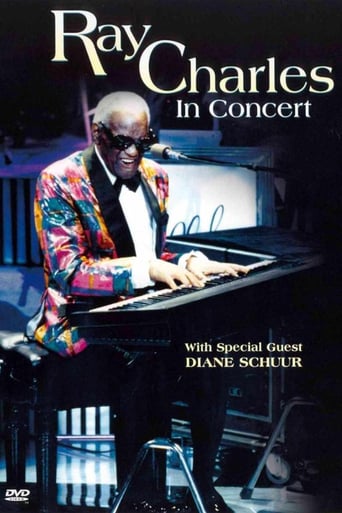
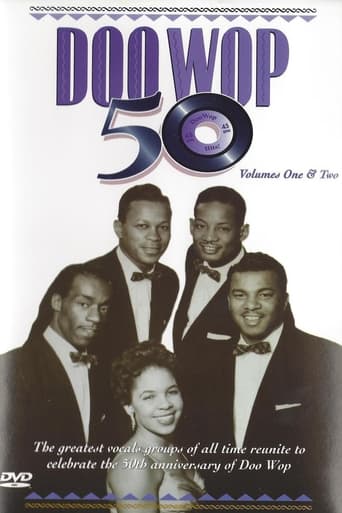
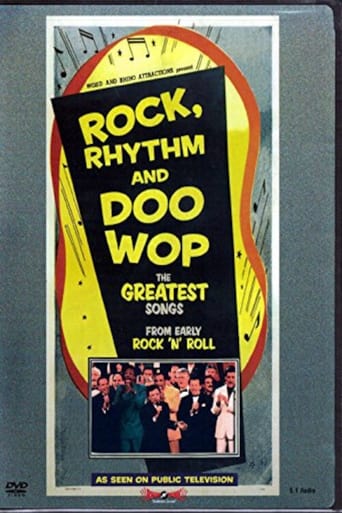

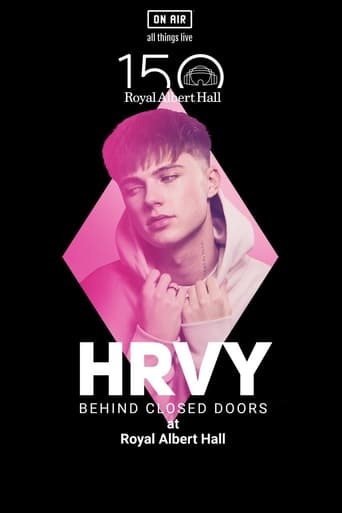
Reviews
Really Surprised!
Memorable, crazy movie
A movie that not only functions as a solid scarefest but a razor-sharp satire.
This is a small, humorous movie in some ways, but it has a huge heart. What a nice experience.
9/6/17. If you like Bob Dylan you will love this. If you don't know who Bob Dylan is you should watch this. This documentary provides a behind- the-scenes look at this iconic balladeer. He was the voice for a whole generation - the Baby Boomers. But, his songs and lyrics still resonate today.
This behind the scenes documentary of Dylan's 1965 England tour presents him in a rather unflattering light. The scenes that have Dylan and his crew talking among themselves show them to be no more interesting or insightful conversationalists than your average college students. Dylan often comes off as arrogant and contemptuous and it is not always easy to simply mark it down to youth and living in a bubble at such a young age. But, sometimes you can understand his outrage when he gets a question like the one from a Time Magazine reporter, "Do you care about what you sing?" But often Dylan tries to be purposely obtuse and unnecessarily argumentative. I found the most interesting conversation to be between Dylan and the student journalist Terry Ellis (aka "The Science Student"). Dylan actually seemed to be engaged by him to the point of asking him meaningful questions. And on occasion during that conversation it looked like Dylan was having a bit of fun, and not totally at Ellis' expense.Dylan's manager Albert Grossman has one scene where he behaves like a total ass by shouting obscenities at the hotel staff when they ask that the noise in the room be dialed back. In another scene Grossman is seen pulling all the tricks in the book to get a maximum concert fee, but maybe that is what good managers do.There are some highlights like Joan Baez relaxing in a hotel room and singing "Percy's Song" and then her being joined by Dylan to sing "Lost Highway." There is a segment that has Dylan playing solo piano in his room that I quite liked. But, in general I felt I had to wade through a lot of less interesting stuff to get to the good stuff, and most of the good stuff was the music.Maybe this film loses some of its impact some forty years on, but director Pennebaker did not invent the use of hand-held cameras or the grainy black and white, low-budget look and feel that some seem to credit him with.Dylan only seems relaxed and enjoying himself when he is involved with music. Perhaps it is indeed the case that an artist's work is most always better than what the artist is as a person.This film provides an interesting counterpoint to Scorsese's "No Direction Home: Bob Dylan."
D.A. Pennebaker does something different with this clearly- and probably slightly revolutionary- approach to form of cinema verite approach that has as much to do with directorial choice as it does with lack of any budget, and trying to use the best of an all-access-pass to the behind the scenes with an iconoclast like Bob Dylan. As far as I can tell, and maybe it's something sort of naive, there doesn't seem to be an inherent bias on part of the filmmaker. A director of a documentary usually, and most often effectively, will have some kind of subjectivity, or something to say with the collection of interviews and the subject matter. But we never really see Pennebaker skewering either side or the other. For whatever one might perceive to see in Bob Dylan from this time capsule, a man at 23 who was swarmed by media buzz and an acclaim that was staggering (and, from the start for Dylan, more than a bit of a crock), it can't be said that Pennebaker is being unfair to anyone here, not to Donovan or the press or whoever it was that broke that glass in the street.And least of all to Dylan himself; it's because of a stripped-down, bare-boned approach to film-making with a camera in a room getting down the beats- only once does Pennebaker go to a 'flashback' of sorts- that one can't truly and easily pin down what Dylan's all about. And because of the questions raised about the nature of a young artist in a frenzied environment where the pressure to be one thing, i.e. 'folk hero', 'voice of a generation', et all, it's really not simply one of the best rock documentaries, but one of the more insightful, strangely involving documentaries of the past 50 years. We see the fun moments; Dylan having laughs with his fellow musicians or playing guitar with Joan Baez or others; the quiet moments like writing a song on the typewriter; we see the interviewers perplexed at the thought that they're getting prodded by a subject who can disarm their queries at nearly every turn either, arguably, by a stand-offish quality, or just not knowing how to logically answer a question without sounding untruthful. And then the music, on stage, sort of alone in a way with the audience tuned into every word he says as though he's a golden calf.Many scenes are simply fun, experimental. The opening to the film is like a punk rock music video, as Dylan just stands there, awkward and blank-faced, turning over the cards for Subterranean Homesick Blues, with Ginsberg at the end walking across the alley Dylan was standing on. Seeing Dylan with an acute sense of humor is refreshing, and at times it's almost like he uses it as a defense mechanism, as a means of uncertainty to go through fans and the like (the scene with the science student has been described by some as Dylan being simply bullying, but again there seems to not really be any bias- Pennebaker could make this guy look like the fool, but each side is heard, and whoever comes out the wiser once the conversation ends is anyone's call). It might go without saying, however, that some of the material in the film could use some context: Dylan had to go under the same sort of press attention and questions every time, over and over, which was something that Dylan could never really adjust to like other celebrities or popular musicians. Hence a scene like the heated talk with the TIME news reporter; if one knows nothing of Dylan, it might make him seem hostile, or at least uncomfortable. But even with this one sees the nature of an interview where there isn't balance- TIME hasn't listened to much of Dylan's music, and Dylan already has a bias against the magazine for, according to him, not printing the truth as it could. "Do you care about what you do?" the interviewer asks him, to which Dylan takes umbrage. It's almost like watching a loop, where neither side will give in exactly, and it's too complex to tell which side is really wrong or right. Questions between them lead to the audience bringing up questions: is this 'folk hero' really a jerk? Is there some truth to his ranting? What about the generation gap? It's a perplexing scene that is, in its tense manner, spectacular.But as many will want to see in Don't Look Back is the music, the mood of the man who's life was work. It's interesting to see Dylan, in context, on the precipice of his transition from folk to rock, starting a slight disconnect with the folk scene with a few fellow band-mates on the tour, and yet always at his peak playing the same songs he'd played repeatedly for the past few years (Times They Are A'Changin is the same opening number on every date of the tour). There are many pure moments of spontaneous music (Joan Baez singing Turn Turn Turn, and Dylan with It's Alright Ma, I'm only Bleeding ), and practically all the stage stuff, including Hard Rain's Gonna Fall and Blowin in the Wind, two of the most atypical of his songs. At the same time one sees and hears someone like Bob Dylan at the peak of his powers in the 60s, there's the observant dissection of fame- even through Pennebaker's technical imperfections of a loud camera- and if only a small taste of the 'why' that Dylan couldn't ever really be himself, and if so wedged somewhere in a quasi-persona. Don't Look Back is amazing.
Too bad this dreadful documentary didn't show a lot more of young Joan Baez and a lot less of Bob Dylan. Baez casually and unselfconsciously sings a couple of songs, relaxed, strumming her own guitar and reminding us of what a miraculous voice she had as a youngster. Bob Dylan, the star of the film, reminds us -- unfortunately -- that while he is a brilliant writer of songs and music, he had a voice like chalk on a black board and a manner that was thoroughly obnoxious. While he may have been joshing several of his interlocutors, the conversations had a distinctly unpleasant and confrontational tone and displayed Dylan at his absolute worst as a human being. One can forgive him his youth but his exaggerated opinion of himself and his hostility toward people just trying to do their jobs are disagreeable in all respects. Since Dylan's manager was involved in producing the film and it clearly had Dylan's blessing, it's evident that they were oblivious to the impression it leaves of Dylan as a callow youth with no interest in anyone other than himself and his crew of friends and supporters.

